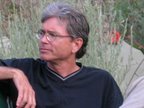I often tell my students about O'Connor's Three Laws of Science. I was inspired by Newton, of course, as his Three Laws of Motion are the jump-off point for many explorations of mechanical phenomena. My laws are more abstract, and are about the nature of science itself, not about a specific area of study. Number One: all measurements are uncertain. I like to say the corollary to Number One is find the degree of uncertainty you are willing to live with. If you are rough-framing a house with 2x4s, being off now and then by a quarter of an inch is no big deal. If you are building cabinets, however, being off a quarter of an inch is a catastrophe. Measure as precisely as you need to. And please don't tell me the answer with the eight decimal places your calculator gave you! People on a diet care about pounds, not ounces. Number Two: science is a description of nature, not an explanation. As Alfred Korzybski opined, "the map is not the territory." Science does not concern itself with Truth, and at least, in my view, it should not. Leave that to philosophers and holy men. They can talk all they want about the subjective and the mystical, none of those things can withstand the rigors of experimentation. Science requires repeatability--if you can't get my results then one of us is wrong. I don't mean to say that subjective experiences aren't real, they just aren't amenable to analysis. Scientific "truths" are contextual, that is, they are only as good as the paradigm they fit within. (I use that word in the sense that Thomas Kuhn did in his The Structure of Scientific Revolutions.) All experiments operate within a theory of how nature works. Scientists don't investigate randomly--they look for things they believe they "should" find, that is, what the theory (or dominant paradigm) predicts. Or they look at anomalies, things that don't fit the theory, and try to enlarge their understanding so that these outliers will fit within the current models. Only when the paradigm fails to produce satisfying (i.e., consistent) results does a "revolution" occur. Think Copernicus, or Einstein. Nature doesn't change, only our way of seeing it. Number Three: correlation does not imply causality. The Romans would have said "post hoc, ergo propter hoc." That's a logical fallacy, and the Greeks (Rome's teachers) would have drilled that notion into their rhetoric students. Just because A happens after B does not mean that A causes B to happen. The sun rises after my alarm goes off. If I turn off my clock, will that plunge the world into darkness? We see this sort of thinking every day, especially in politics. So-and-so got elected and then the economy (or whatever) did this-or-that, obviously so-and-so deserves the credit or blame. I remember when everyone got excited that sunspot cycles appeared to correlate with drought in California. That's it! Explanation! Mystery solved! Until the drought persisted, of course, and we were left once again with the complexity of the global climate system.
So that's it. Science in a nutshell. And I like to end my talk with my favorite line from Shakespeare:
There are more things in heaven and earth, Horatio,
Than are dreamt of in your philosophy.
(Hamlet, Act I, scene V).
To me, this means never underestimate nature. The vastness of the universe should awe us and keep us humble. Science is a product of the human mind, and is thus subject to all the vagaries and frailties of humankind. It is also the most powerful and most fruitful of all human endeavors. Without science, I would like to note, religions would have nothing to talk about. The pope, for example, spends a lot of time on birth control. The pill wasn't invented by priests, man. I'm not religious, as you might imagine, but I also don't really see the supposed conflict between science and religion. After all, religion is about things that cannot be measured or experimented upon. Religions don't have "testable" questions. If people want to believe that tablets with God's Laws on them were handed out to Moses or discovered by Joseph Smith, that's all fine and dandy. Science can't respond to such notions because they cannot be falsified. Many scientists possess religious faith (like Newton, for example), and that seems to make the point moot, don't you think? A belief in the afterlife won't prevent anyone from determining the chemical composition of nebula, and reading the gospels won't stop a polymerase chain reaction.
Sorry for the long-winded rant, I got inspired this morning when I dropped in the on the website BETTER EXPLAINED and read their delightful thumbnail sketch of Bayes' Theorem. Good stuff, check it out!
WTF
-
The Giants are supposedly bringing in Luis Arráez to play second base. I
used to say I would "take anyone on a one or two year deal" but this is a
real h...
2 weeks ago







No comments:
Post a Comment